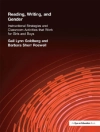Medical residents in hospitals are often required to be on duty for long hours. In 2003 the organization overseeing graduate medical education adopted common program requirements to restrict resident workweeks, including limits to an average of 80 hours over 4 weeks and the longest consecutive period of work to 30 hours in order to protect patients and residents from unsafe conditions resulting from excessive fatigue.Resident Duty Hours provides a timely examination of how those requirements were implemented and their impact on safety, education, and the training institutions. An in-depth review of the evidence on sleep and human performance indicated a need to increase opportunities for sleep during residency training to prevent acute and chronic sleep deprivation and minimize the risk of fatigue-related errors. In addition to recommending opportunities for on-duty sleep during long duty periods and breaks for sleep of appropriate lengths between work periods, the committee also recommends enhancements of supervision, appropriate workload, and changes in the work environment to improve conditions for safety and learning. All residents, medical educators, those involved with academic training institutions, specialty societies, professional groups, and consumer/patient safety organizations will find this book useful to advocate for an improved culture of safety.
Committee on Optimizing Graduate Medical Trainee (Resident) Hours and Work Schedules to Improve Patient Safety & Institute of Medicine
Resident Duty Hours [PDF ebook]
Enhancing Sleep, Supervision, and Safety
Resident Duty Hours [PDF ebook]
Enhancing Sleep, Supervision, and Safety
购买此电子书可免费获赠一本!
语言 英语 ● 格式 PDF ● 网页 426 ● ISBN 9780309127776 ● 编辑 Cheryl Ulmer & Dianne Miller Wolman ● 出版者 National Academies Press ● 发布时间 2009 ● 下载 3 时 ● 货币 EUR ● ID 7141120 ● 复制保护 Adobe DRM
需要具备DRM功能的电子书阅读器












